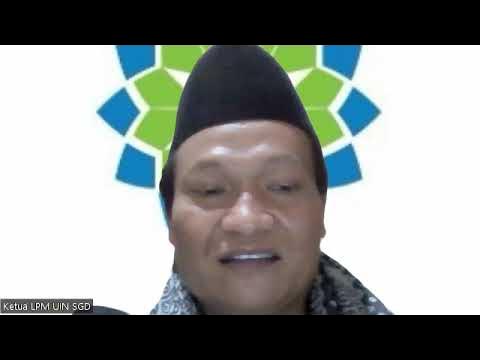Public Speaking Tricks Politicians Use (And How You Can Too)
Summary
TLDRThis video delves into the art of political rhetoric, highlighting how politicians use techniques to persuade and connect with voters. From mastering pressure and delivering clear, impactful messages to leveraging emotions and storytelling, politicians craft speeches that move audiences. They employ rhetorical devices like the three-part list, contrast, and anaphora to enhance their influence. The script also explores how repetition, size of the lie, and the fast pace of politics enable politicians to shape public opinion, often bending reality in their favor. Ultimately, persuasion through rhetoric is central to political success.
Takeaways
- 😀 Politicians are highly skilled in rhetoric and are trained to handle pressure, making them effective communicators under fire.
- 😀 Rhetoric, according to Cicero, can make anything possible, and politicians are masters of persuasion through speech.
- 😀 Clear messaging is a key to political success. The best politicians deliver a simple, memorable phrase that resonates with voters (e.g., Obama's 'Yes, we can', Trump's 'Make America Great Again').
- 😀 The Monroe Motivated Sequence is a common rhetorical structure politicians use: define the problem, propose a solution, visualize the future with that solution, and outline actions to achieve it.
- 😀 Emotions play a central role in political speeches, with politicians using stories, totemic words, and emotional appeals to move audiences to action.
- 😀 Politicians frequently use powerful, emotionally-charged words such as 'freedom', 'equality', 'justice', and 'sustainability' to stir the public's emotions.
- 😀 Effective speeches often include rhetorical devices like the three-part list, contrast, anaphora, and epiphora to reinforce key points and engage the audience.
- 😀 Charismatic speeches are framed around key themes: the future, the group (nation/party), individual stories, core values, and the speaker’s personal connection to the audience.
- 😀 Politicians are trained to handle aggressive questioning by using techniques like pausing to think, framing a controlled response, and sometimes revealing the questioner's biases.
- 😀 One major flaw in political communication is that politicians often avoid answering questions directly, instead using techniques like 'bridging' to steer the conversation toward their message.
- 😀 Politicians rely on repetition, the size of the lie, and our lack of time to thoroughly analyze political statements to maintain power and credibility, a phenomenon known as the illusory-truth effect.
Q & A
What is the core idea of the script about politicians and rhetoric?
-The script explores how politicians are skilled in the art of rhetoric, using persuasion to connect with voters and manipulate emotions. They are trained to speak under pressure, have clear messages, and use powerful rhetorical tools to convey their ideas effectively.
How does rhetoric influence political success?
-Rhetoric shapes political success by making complex ideas more digestible and memorable to the audience. Clear messaging, emotional appeal, and repetition of key phrases help politicians gain support and sway voters.
What is the importance of having a clear message in politics?
-A clear message helps voters remember a politician's core idea long after the election. Politicians like Obama, Trump, and Kennedy used concise slogans that became synonymous with their campaigns, increasing their chances of success.
Can you explain the Monroe Motivated Sequence mentioned in the transcript?
-The Monroe Motivated Sequence is a rhetorical structure that involves five steps: 1) describing the problem, 2) offering a solution, 3) visualizing the impact of the solution, 4) calling to action, and 5) outlining the steps to achieve the solution.
Why do politicians use emotions in their speeches?
-Emotions are powerful drivers of human action, and politicians use them to engage their audience and inspire them to act. By connecting emotionally with voters, politicians can strengthen their messages and gain support.
What are 'totemic words' in political speech?
-Totemic words are words that carry strong emotional connotations, triggering specific feelings in the audience. Examples include words like 'progressive', 'equality', and 'justice', which evoke strong reactions and connect with people's values.
How do politicians use stories in their speeches?
-Politicians often tell personal or compelling stories, such as referencing individual people in the audience, to humanize their message. These stories make their speeches more relatable and emotionally impactful.
What are some common rhetorical devices used by politicians?
-Politicians commonly use rhetorical devices like the three-part list, contrast, anaphora (repetition at the start of sentences), and epiphora (repetition at the end of sentences). These techniques help make their speeches more persuasive and memorable.
What role does framing play in a political speech?
-Framing in political speeches involves structuring the message to focus on key themes such as the future, the collective good, individual contributions, shared values, and personal relatability. This helps make the speech more powerful and engaging for the audience.
How do politicians handle difficult or aggressive questions during debates?
-Politicians are trained to handle aggressive questions by staying calm, taking time to craft their response, and often redirecting the conversation toward their core message. They may also use counterattacks to deflect criticism and maintain control of the narrative.
Outlines

This section is available to paid users only. Please upgrade to access this part.
Upgrade NowMindmap

This section is available to paid users only. Please upgrade to access this part.
Upgrade NowKeywords

This section is available to paid users only. Please upgrade to access this part.
Upgrade NowHighlights

This section is available to paid users only. Please upgrade to access this part.
Upgrade NowTranscripts

This section is available to paid users only. Please upgrade to access this part.
Upgrade NowBrowse More Related Video

POLITIK TAMPANG BLOON (FOLKSY POLITICS)

POLITIK TAMPANG CERDAS (SUBSTANTIVE POLITICS)

John Trudell on the Political System incoherency and voters Interview Oct 2008

États-Unis : ce que Trump fait à la droite américaine | Une leçon de géopolitique | ARTE

Mengenal Komunikasi Politik - Part 2

La argumentación en la cotidianidad
5.0 / 5 (0 votes)